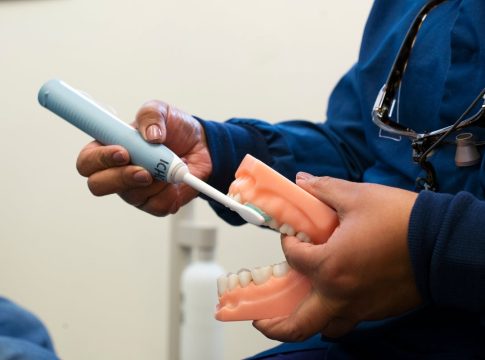Understanding the Connection Between Oral Health and Depression
Recent research has shed light on an intriguing aspect of mental health: the link between our oral microbiome—the community of bacteria living in our mouths—and depression. This emerging area of study invites us to explore how our physical health can influence our mental well-being.
The Oral Microbiome: What Is It?
Our mouths harbor a vast number of microorganisms—estimates suggest between 500 billion to 1 trillion bacteria. While we often think of these bacteria in terms of dental hygiene, their influence may extend far beyond oral health.
Researchers from New York University have found a noteworthy correlation: individuals with less diversity in their mouth bacteria are more likely to exhibit symptoms of depression. This study examined data from over 15,000 adults, utilizing saliva samples and questionnaires to gather insights into their mental health and oral microbiome diversity.
The Bidirectional Relationship
Dr. Bei Wu, a leading researcher in this field, emphasizes the need for deeper investigation into the relationship between oral health and depression. It appears that the oral microbiome might influence mood and depressive symptoms through various mechanisms, such as inflammation or immune system responses.
Conversely, the state of one’s mental health can also impact oral health. For example:
- Diet: Poor eating habits often accompany depression, affecting overall nutrition.
- Hygiene Practices: Neglecting dental care due to depressive symptoms can alter the makeup of oral microorganisms.
- Substance Use: Increased smoking or drinking, commonly associated with depression, can change the bacteria balance in the mouth.
Implications for Treatment
Understanding this relationship is vital. Knowing that antidepressants and other psychotropic medications can influence oral health opens a new avenue for research and treatment.
Why Does This Matter?
This knowledge could potentially lead to:
- Better strategies to support mental health through improved oral care.
- The development of new diagnostics or biomarkers for mood disorders.
- A more holistic approach to treating depression by recognizing the role of physical health.
A Call for Awareness
As mental health continues to be a pressing concern—with an estimated 21 million adults experiencing at least one major depressive episode annually—exploring diverse factors influencing our mood is crucial.
What Can You Do?
Consider incorporating simple practices into your routine to support both oral and mental health:
- Maintain Regular Dental Care: Brushing and flossing daily can promote a healthier oral microbiome.
- Balanced Nutrition: Focus on a diverse diet rich in fruits, vegetables, and whole grains.
- Mindfulness Practices: Engage in activities that promote mental well-being, such as meditation or yoga.
- Stay Informed: Educate yourself about the links between physical and mental health.
In summary, the connection between our oral microbiome and mental health underscores the importance of a comprehensive approach to wellness. By nurturing both our physical and mental health, we can empower ourselves on the journey toward better overall well-being.

Covers wellness, nutrition, mental health, and daily life tips.
Bio: Talia brings a background in health journalism and holistic living to help readers live better, one tip at a time.

